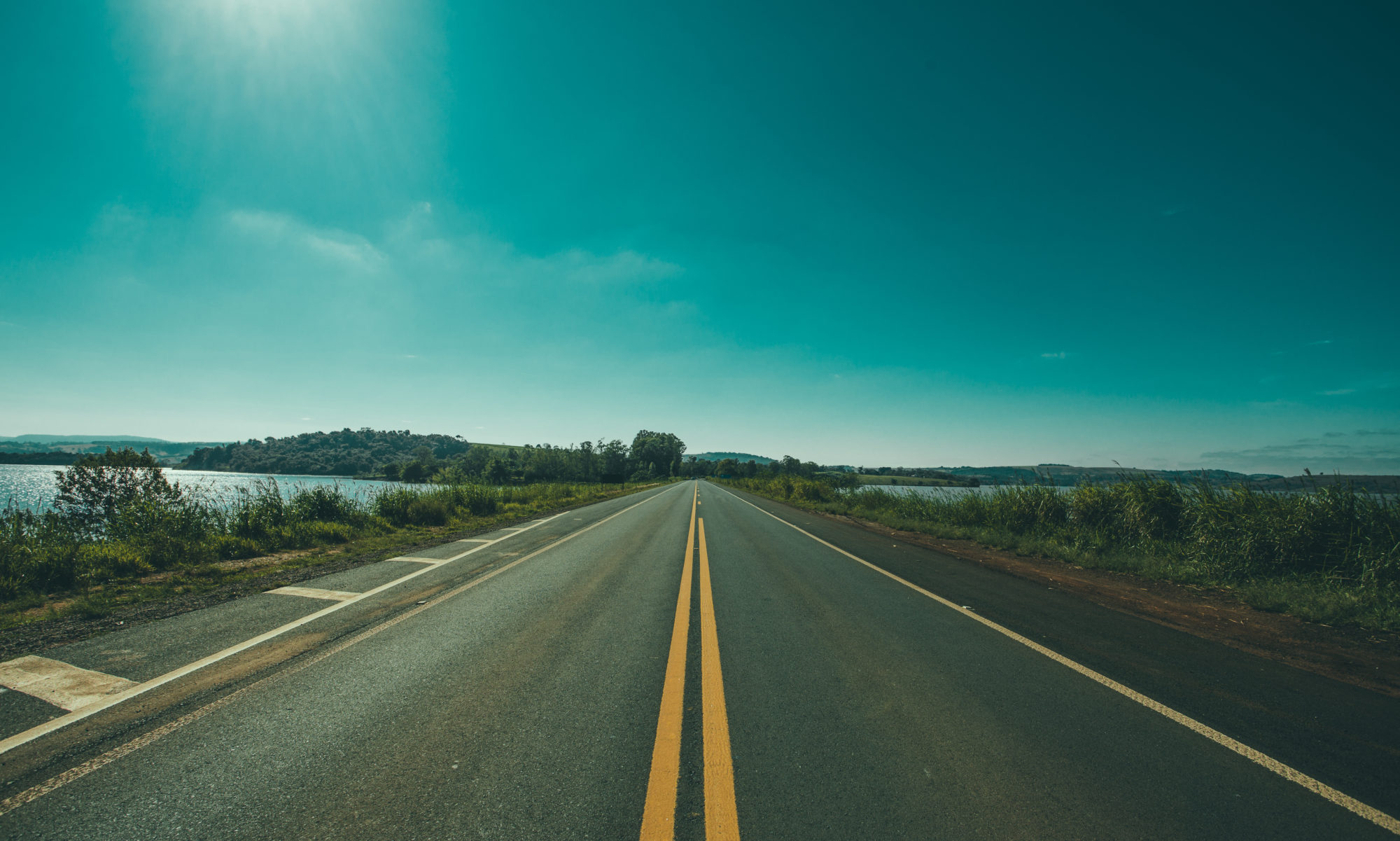This part of our Chile/Argentina journey is all about the desert. I’ve mentioned before that there are few things we enjoy more than a good road and a desert. From Iquique, we drive to San Pedro de Atacama, almost 500 kilometres away.
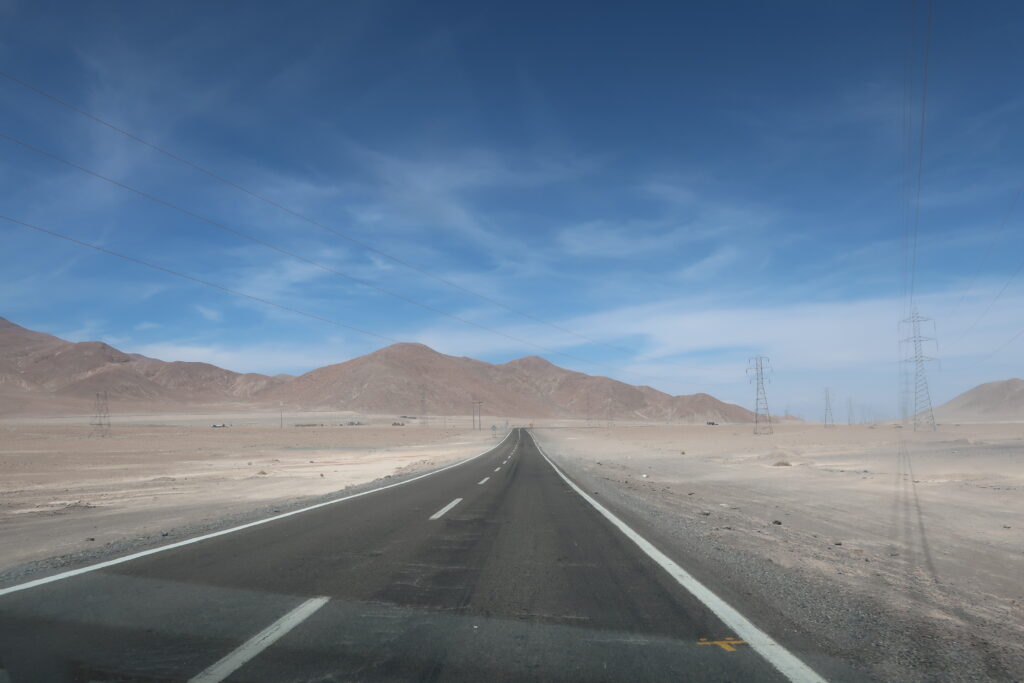
We were hoping to visit the Chuquicamata mine, which was at one time the world’s largest open-pit copper mine. There used to be tours available, but these have been discontinued.
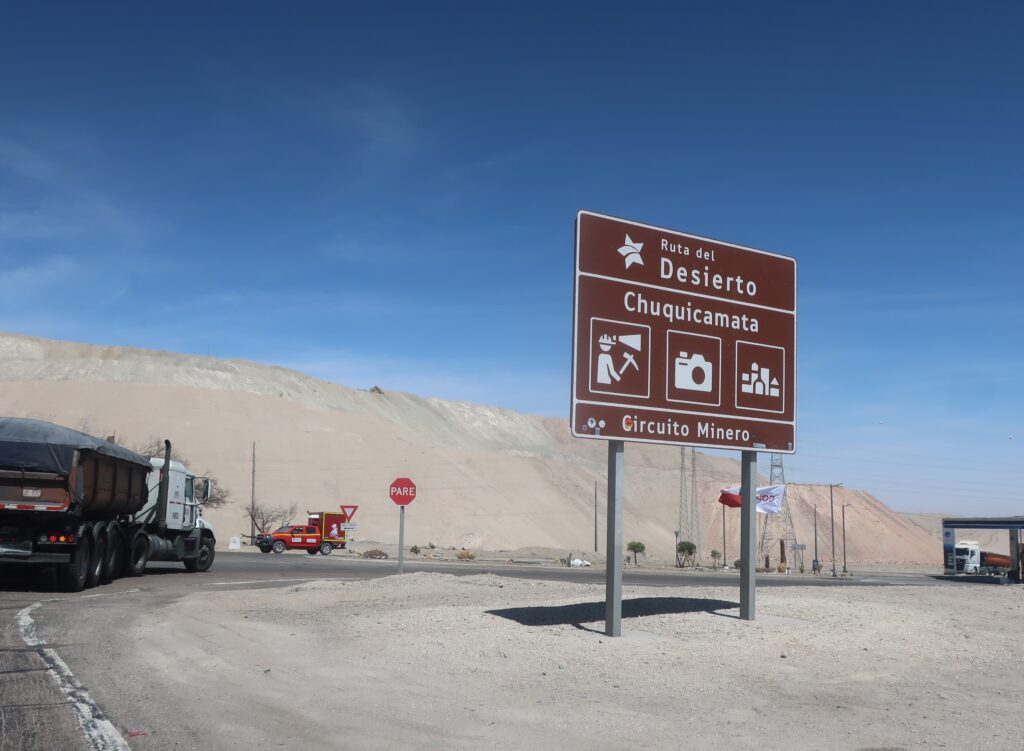
It’s hard to decide which of our many desert photos to use. Also difficult to come up with catchy descriptions. So we’re just going to provide generic labels for our many desert shots.
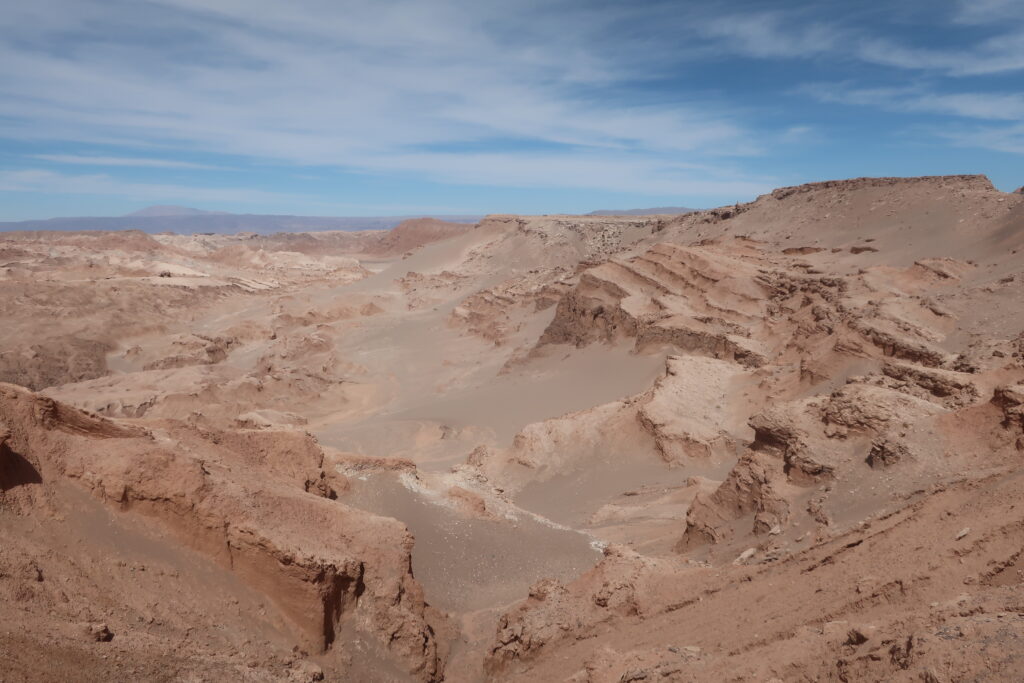
San Pedro de Atacama is essentially an oasis. In these parts, towns are only found where water is available.
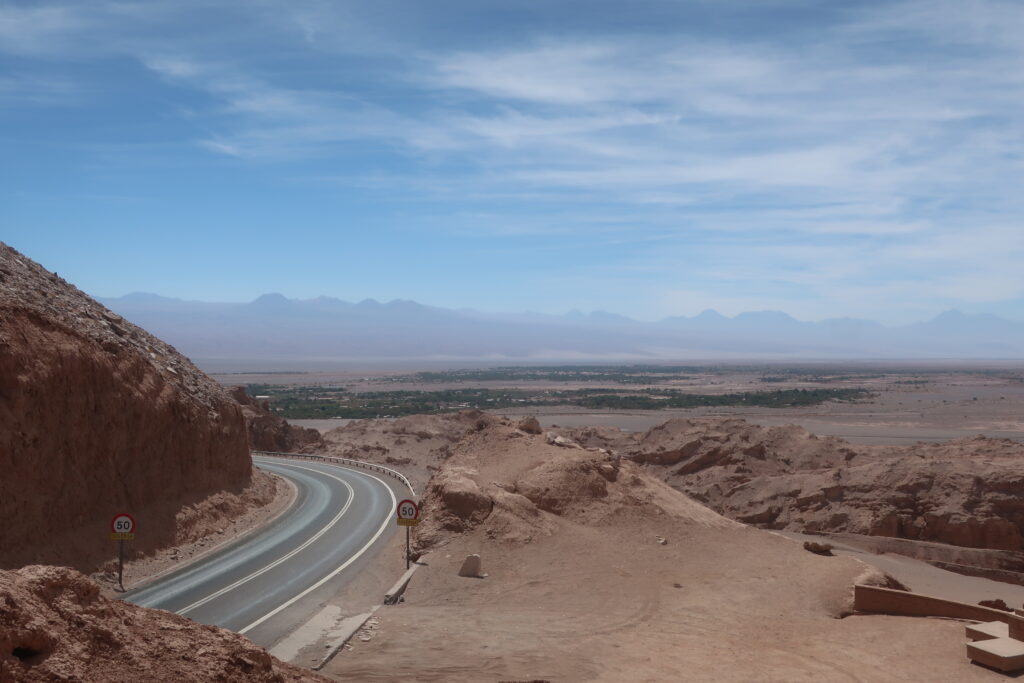
San Pedro is the base for most desert activities. Its adobe-bedecked walls give it the look of a frontier town.
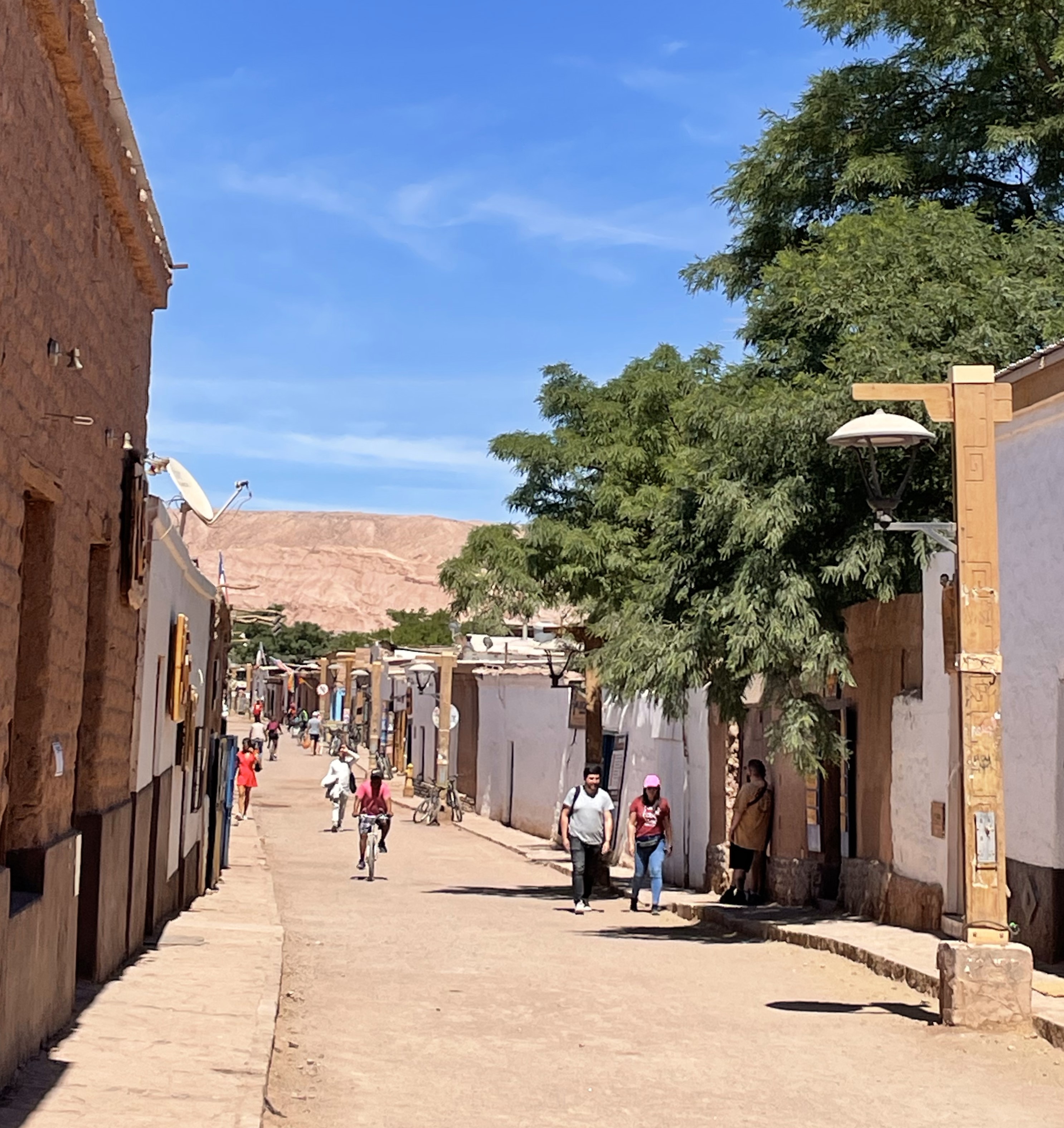
We stay a few kilometres out of town. Very difficult to find, for the uninitiated. (In fact, we still have trouble finding it after several excursions into San Pedro.)
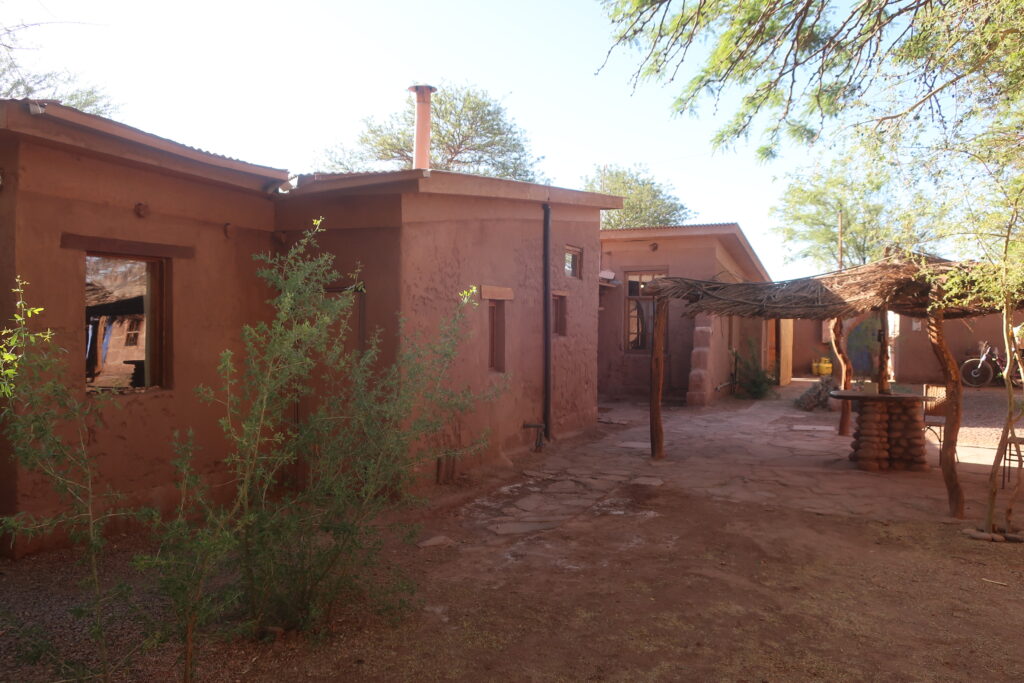
It’s a self-contained unit on somebody’s rural property, with cooking facilities.
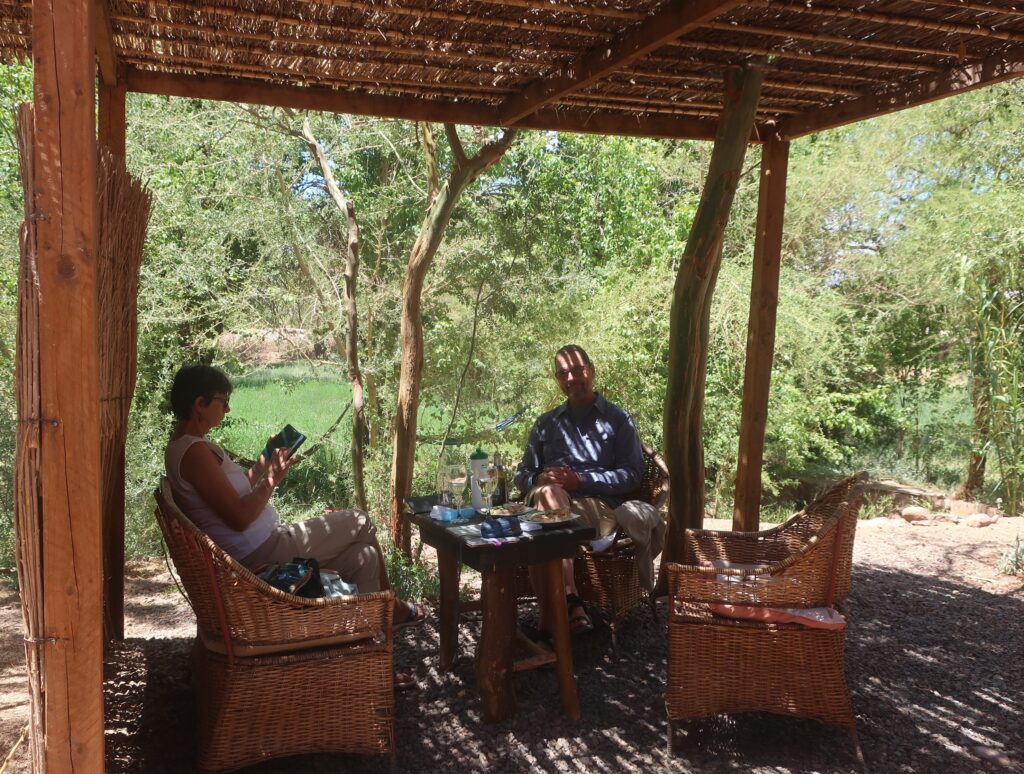
Our first stop is the Valle de la Muerte. (Or Valle de Marte – it’s complicated.)
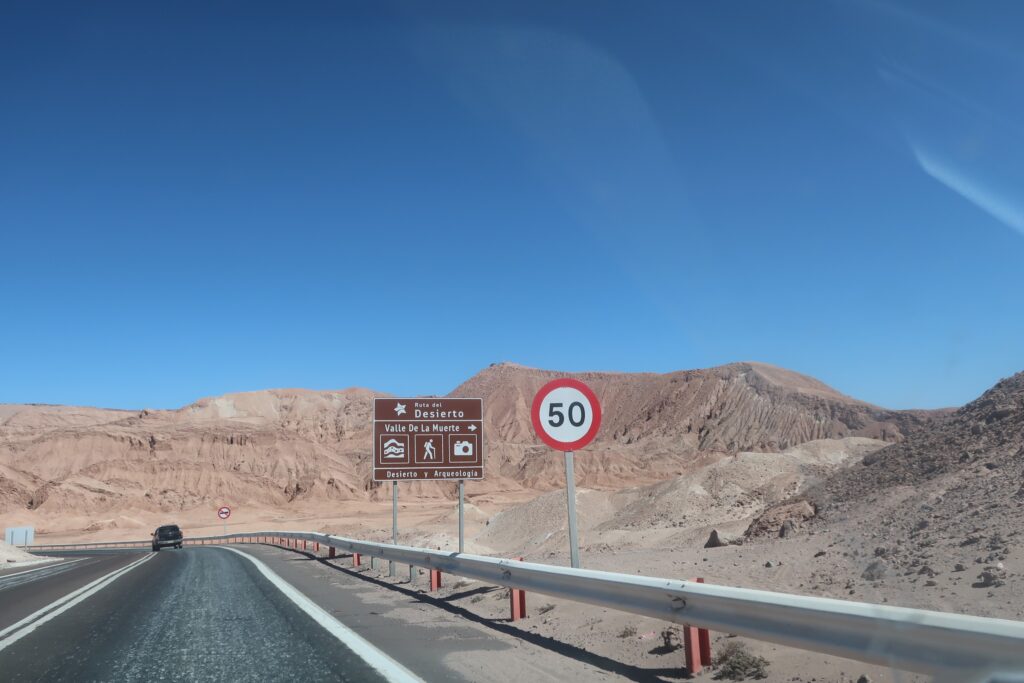
One thing we like about hikes in the surrounding desert – they can be accomplished in an hour or two.
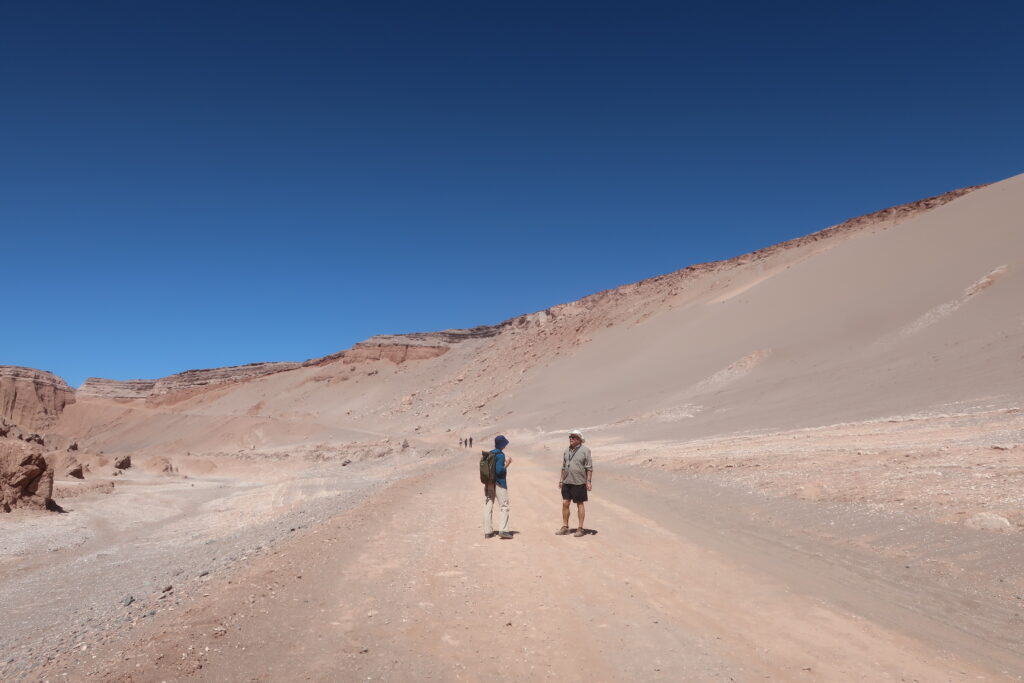
There’s no need to gear up for a multi-day ordeal, like hiking the Grand Canyon, say.
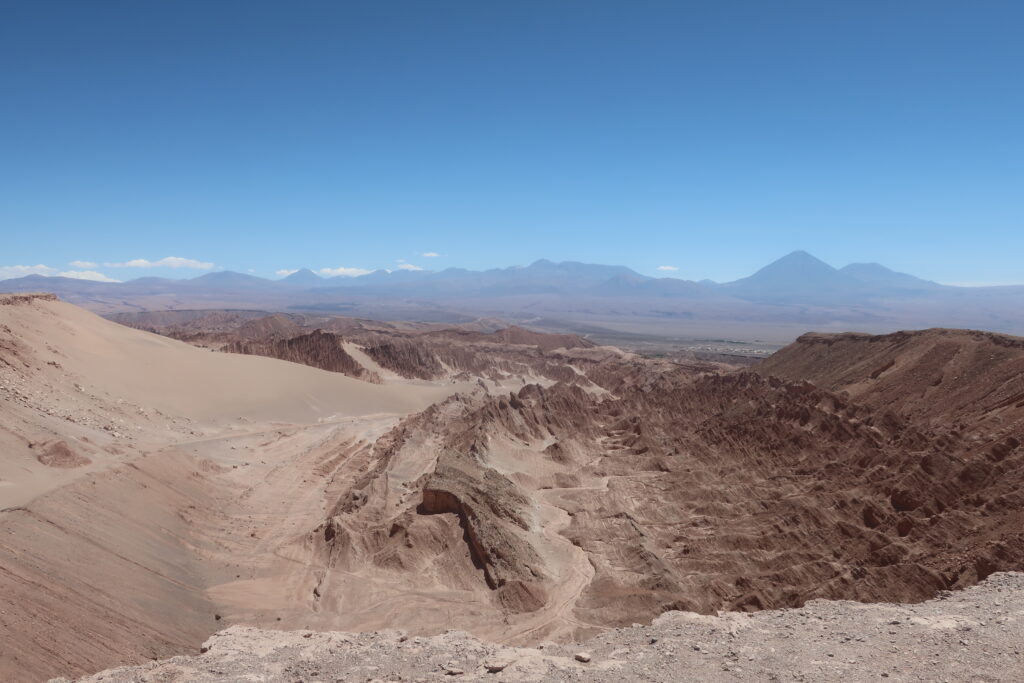
The Atacama Desert is the ‘driest nonpolar desert in the world’, according to Wikipedia.
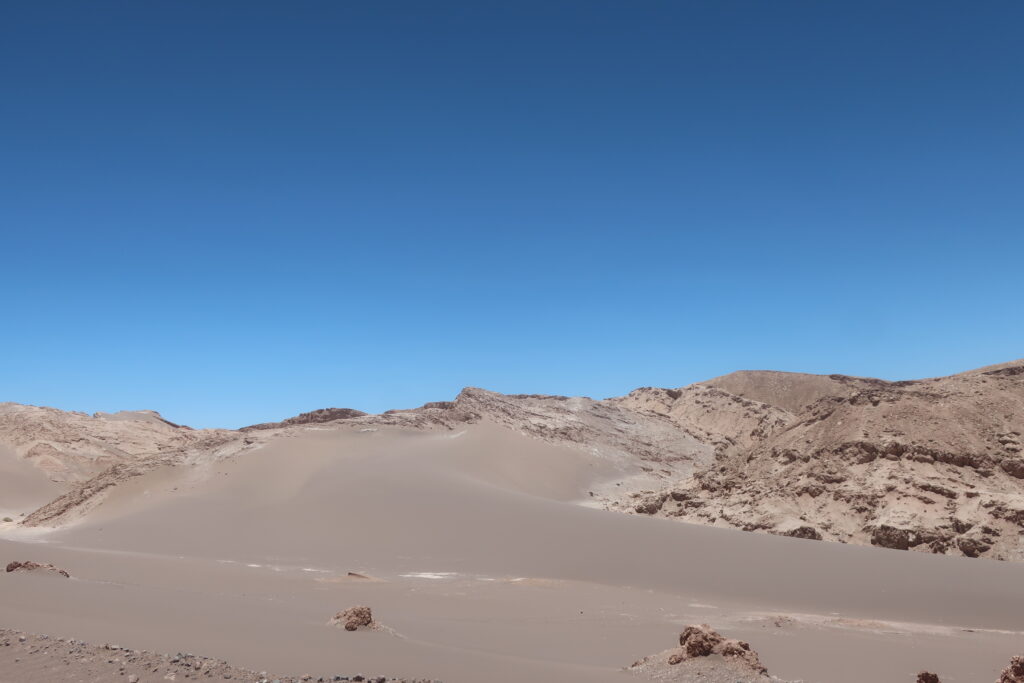
It’s easy to see why the area has been used as a good site to test Mars rovers.
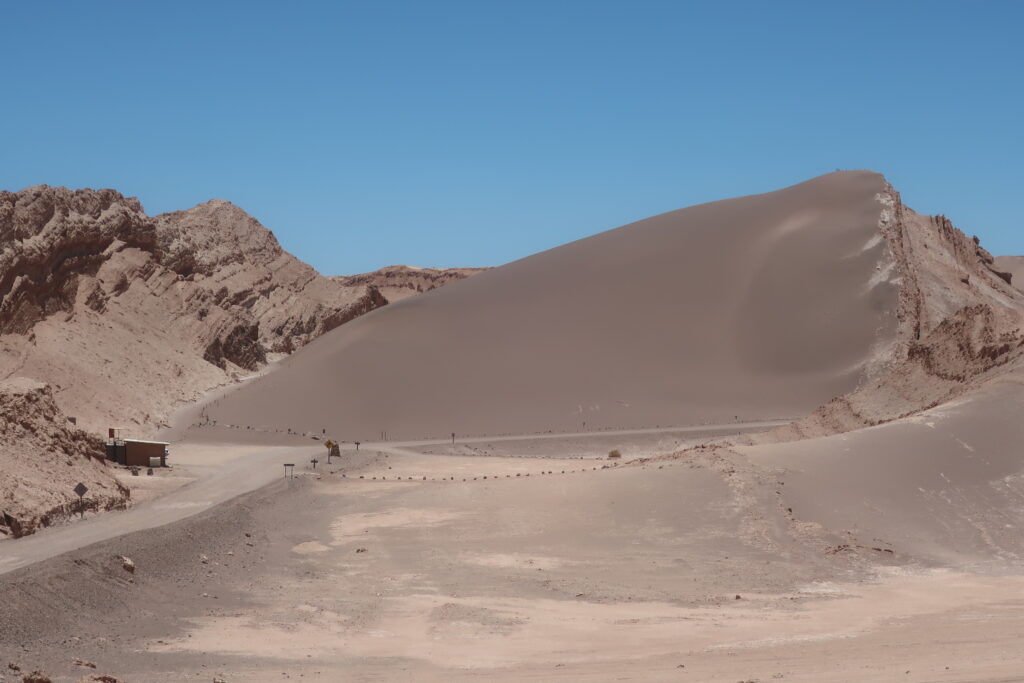
On the same day, we visit the Valle de la Luna.
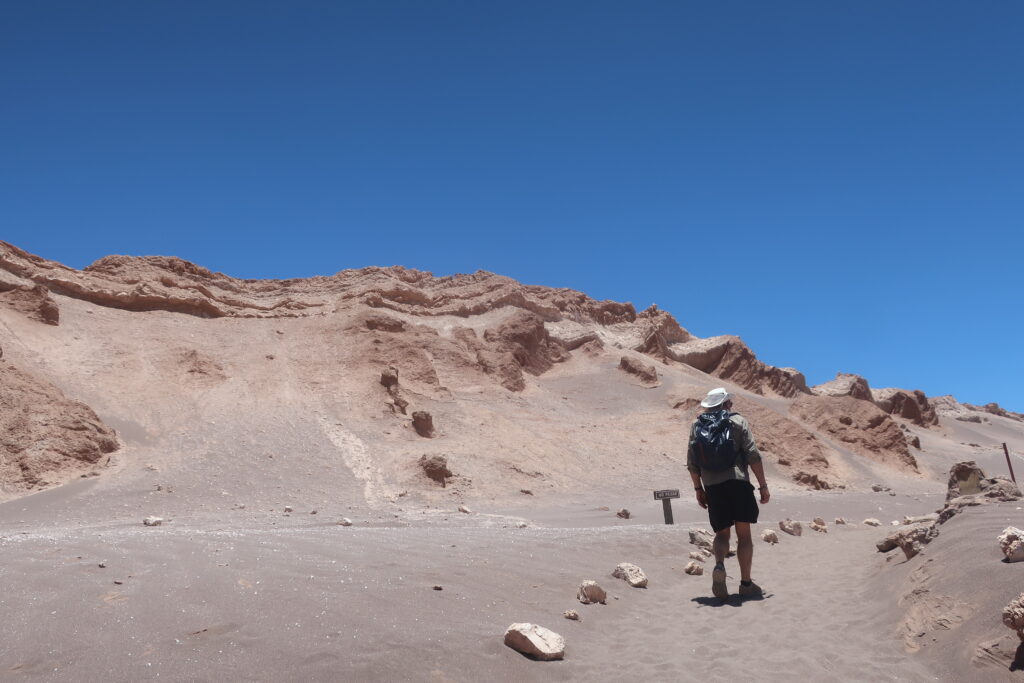
This is even more spectacular than this morning’s hike.
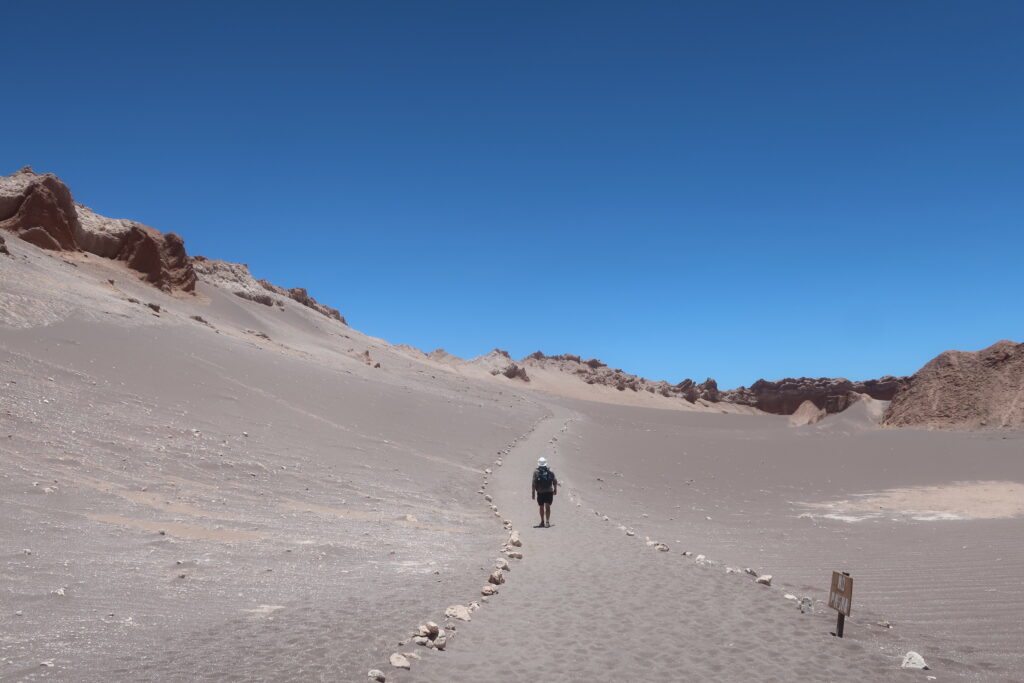
Maria, as usual, sets the pace.
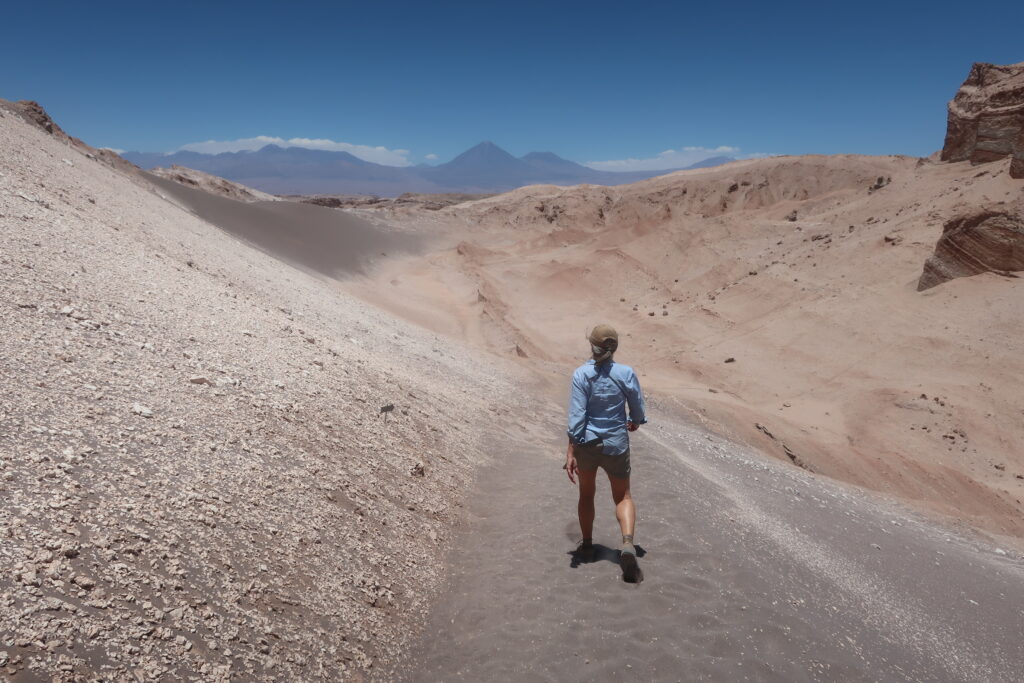
There’s a world of difference between the solitude here and the hubbub we experience in Santiago.
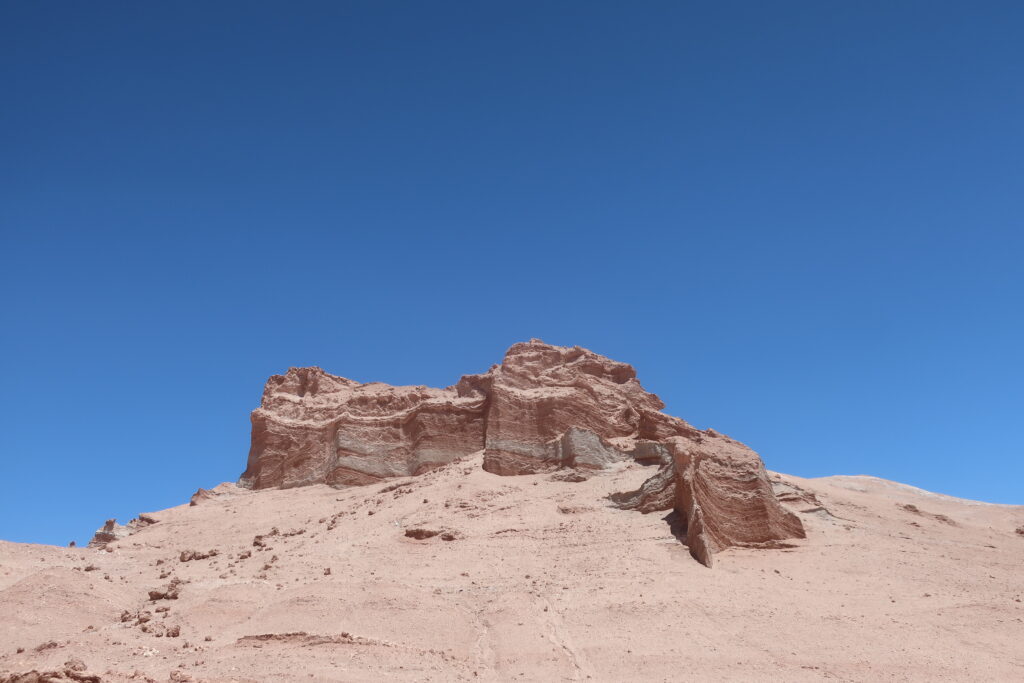
You can depend on having blue skies every day.
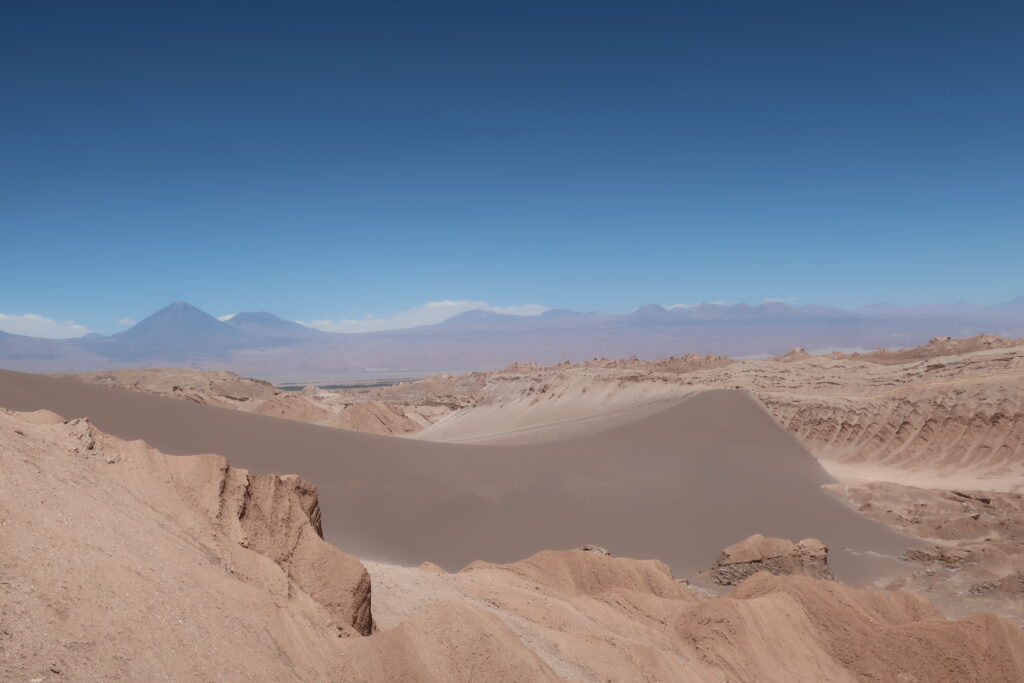
The walks are easily doable, even for those of le troisième âge.
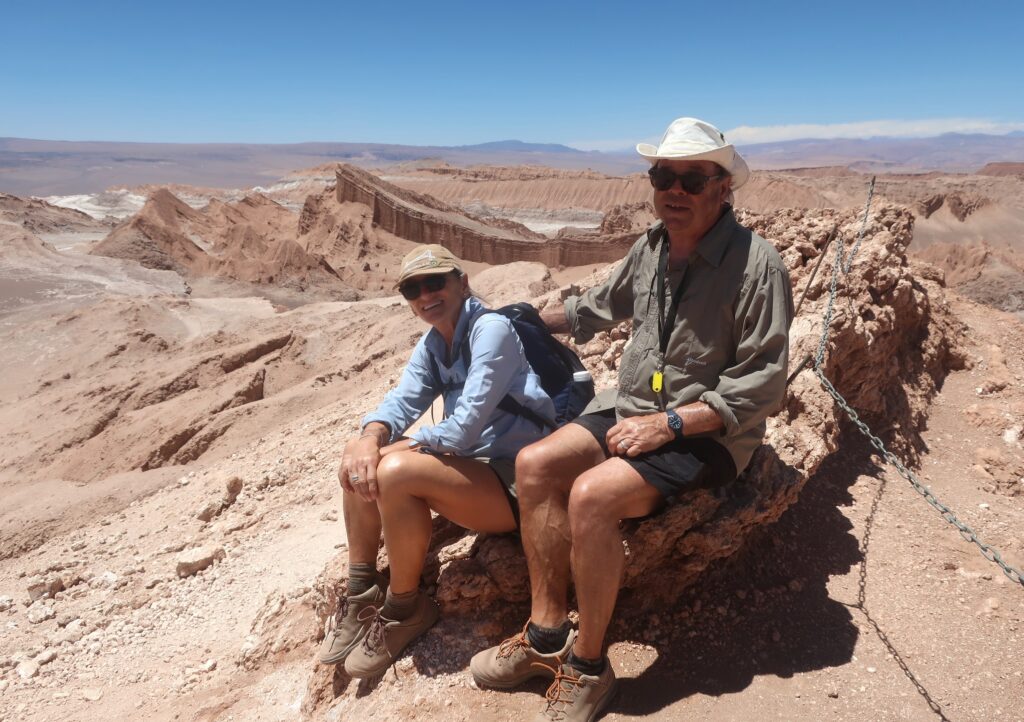
For some reason, I can’t get the song ‘Horse with No Name‘ and its inane lyrics – ‘Cause there ain’t no one for to give you no pain‘<cringe> – out of my head.
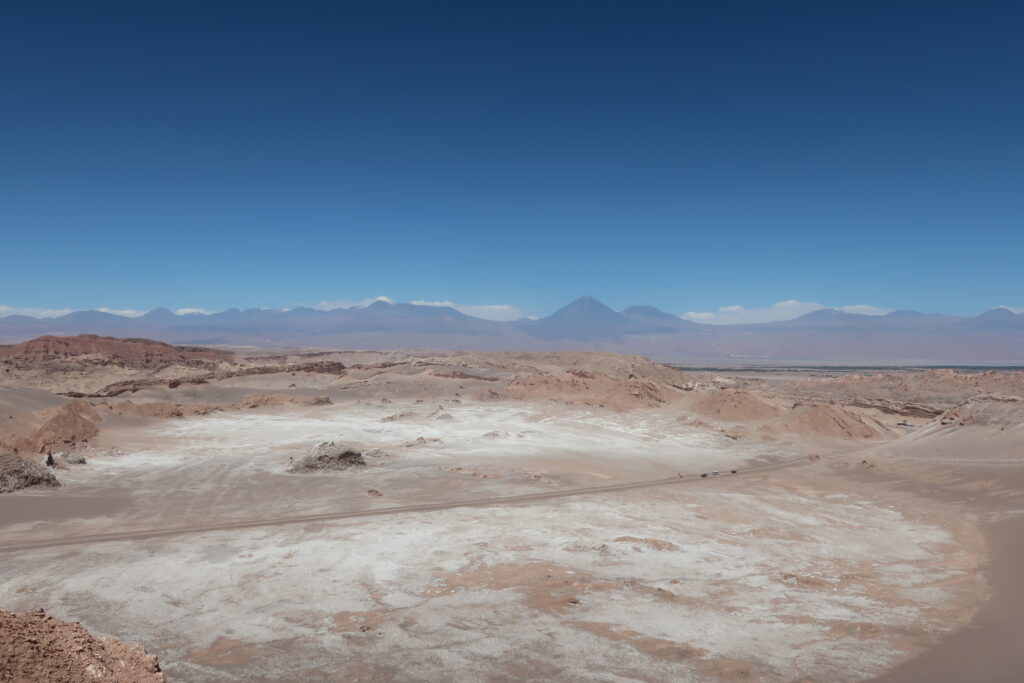
On another day, we visit the Laguna Cejar, a colourful mineral lake with two claims to fame. One is presence of many flamingos.
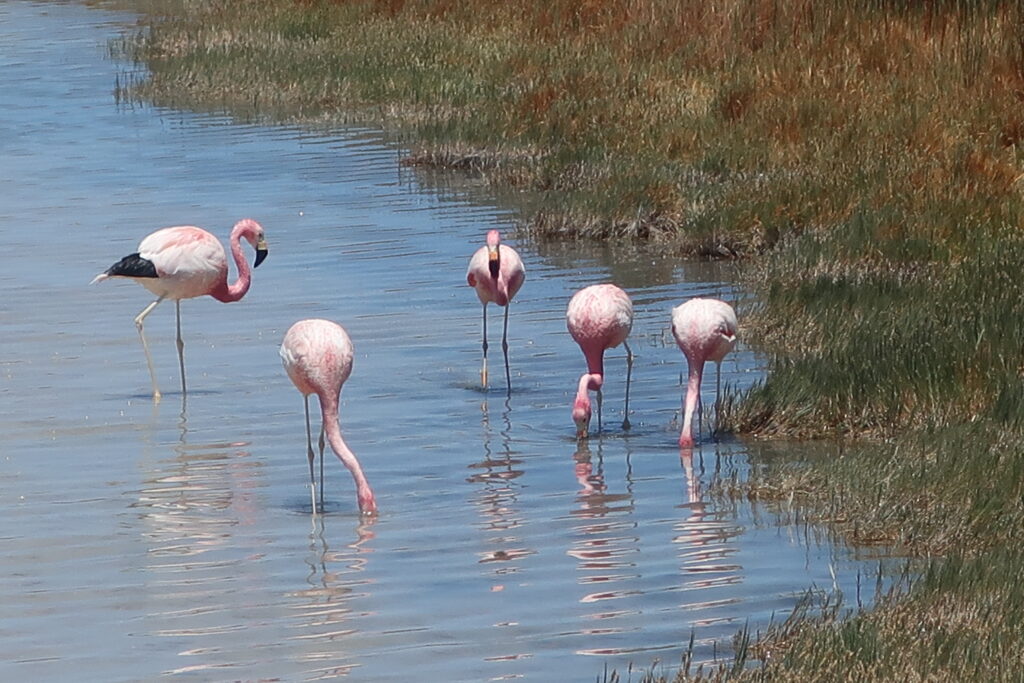
The other is the extreme salinity of the water. This provides a Dead Sea-like ability to bob like a cork without effort.
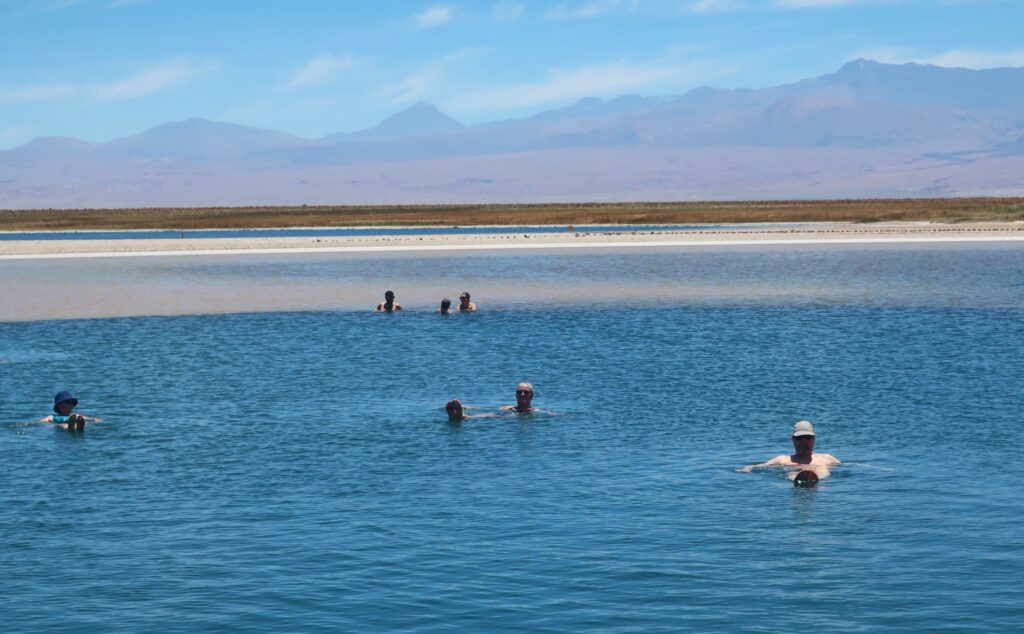
In the afternoon, we take the two-hour drive to the Laguna Chaxa flamingo sanctuary.
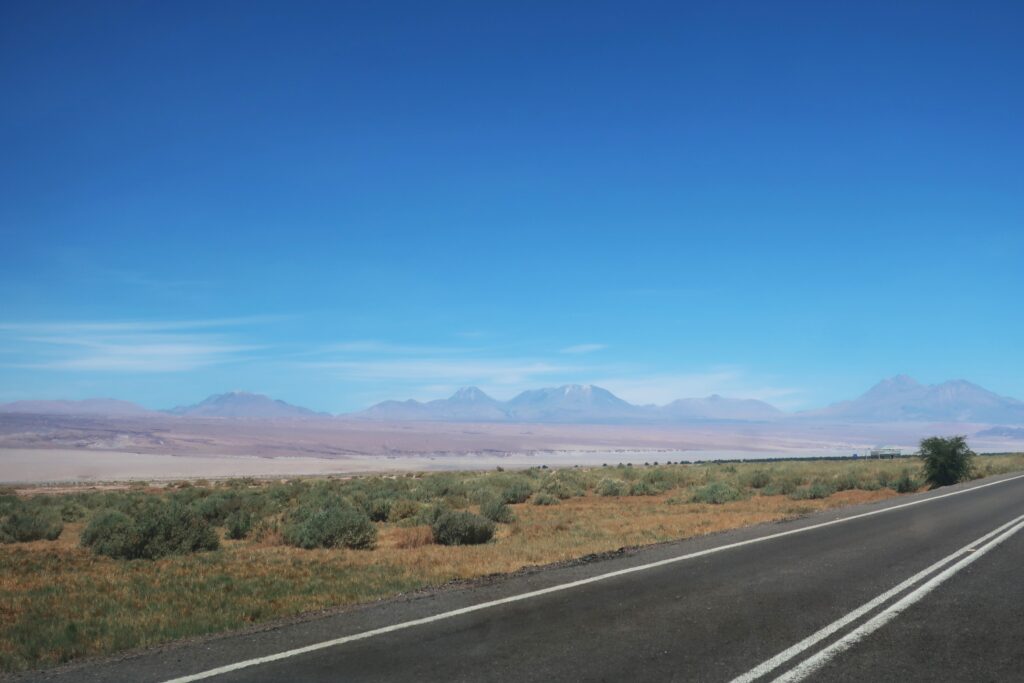
Because of the clearness of its skies, the Atacama Desert is a hotbed of astronomical activity. (If such a thing exists.) We pass by the site of the ALMA astronomical observatory. I’d like to visit, but according to their website, tours are for schools and fellow-boffins only.
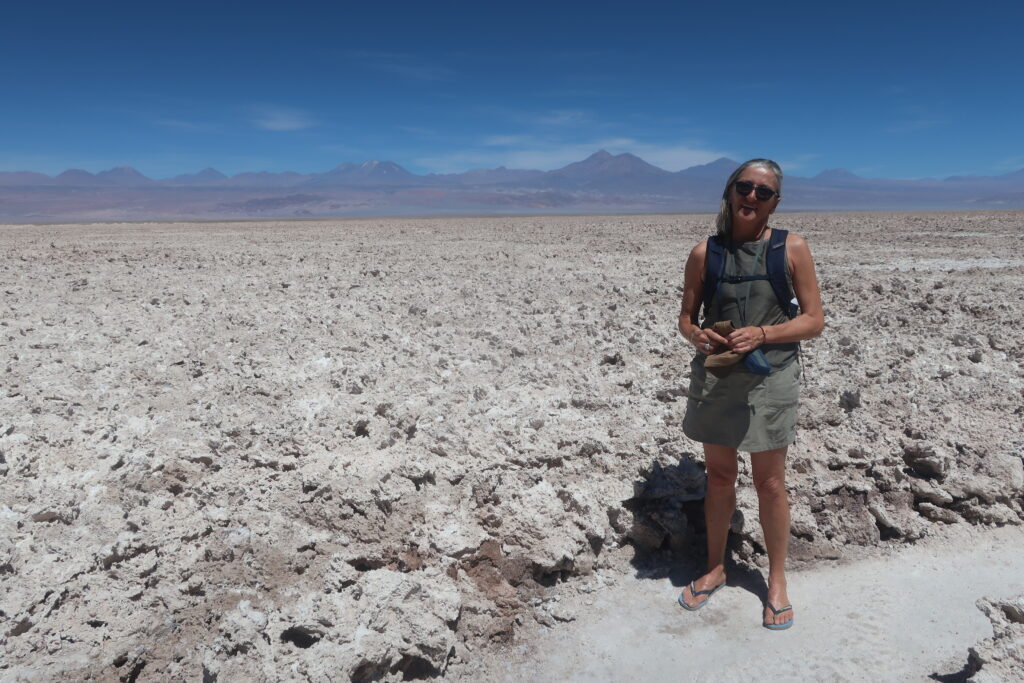
There are indeed many flamingos in the flamingo sanctuary.
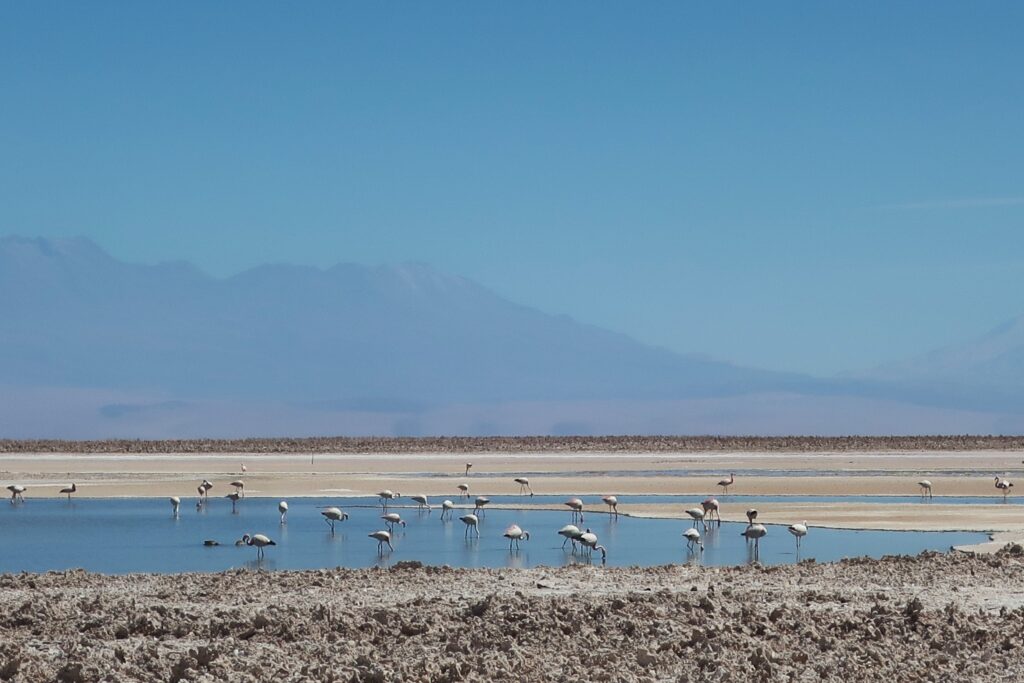
They are quite far away, though. They’re hard to photograph in this flat landscape.
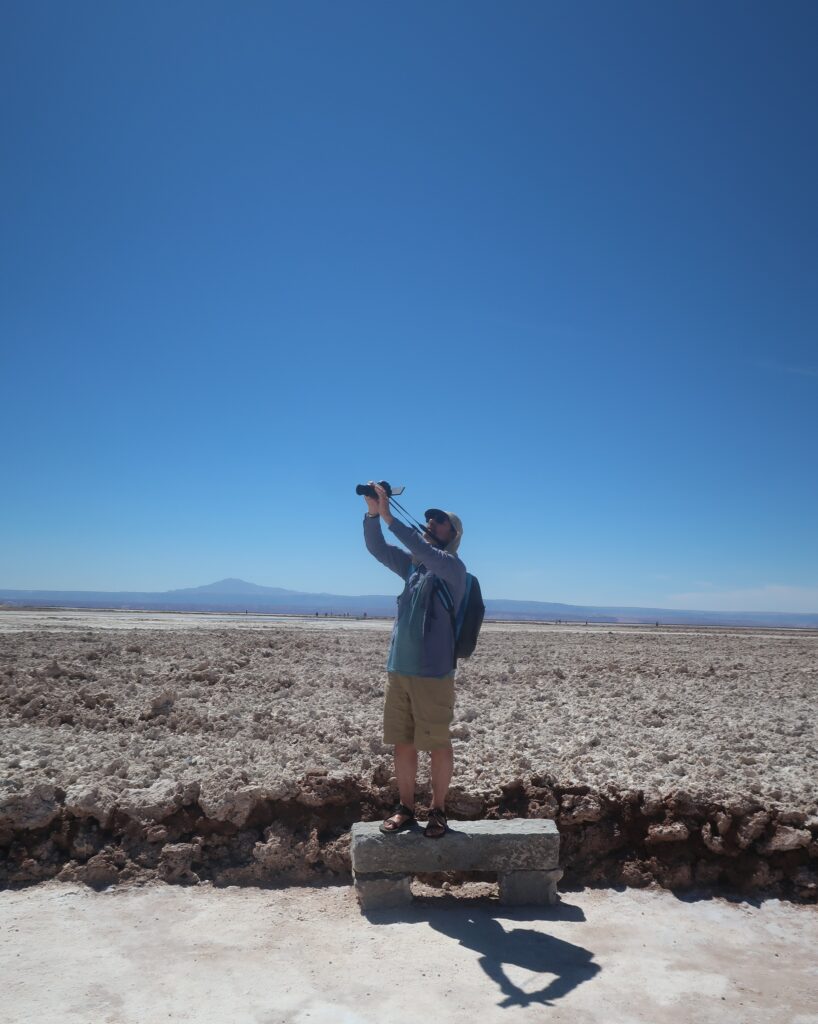
The lake itself is scenic and isolated.
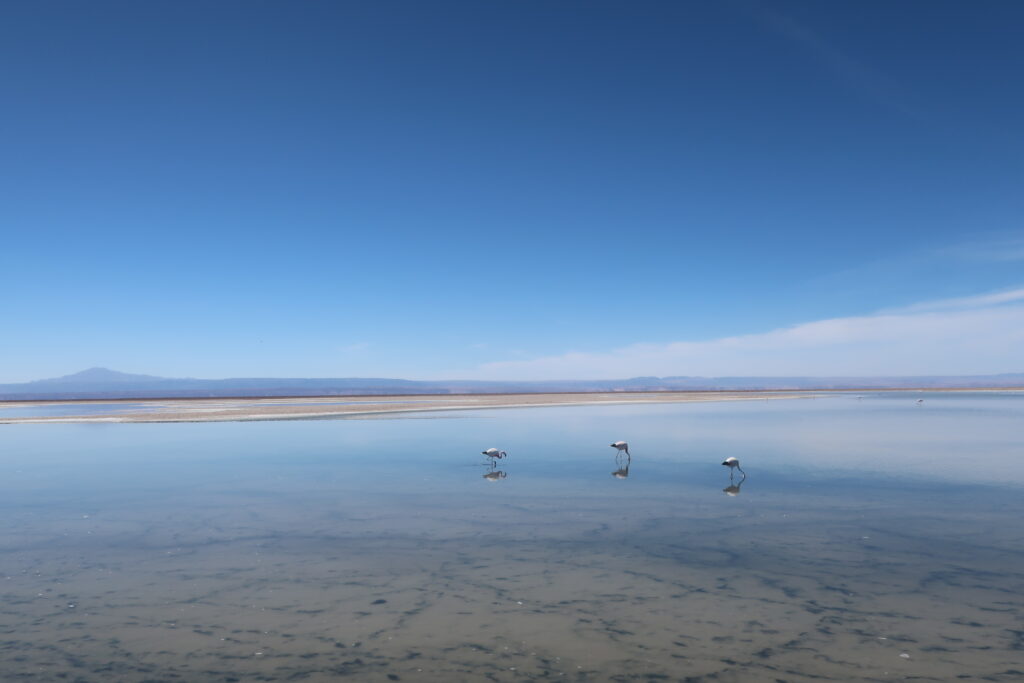
The flamingos thrive on the abundant brine shrimp in these salty waters, which adds to their pinkish hue.
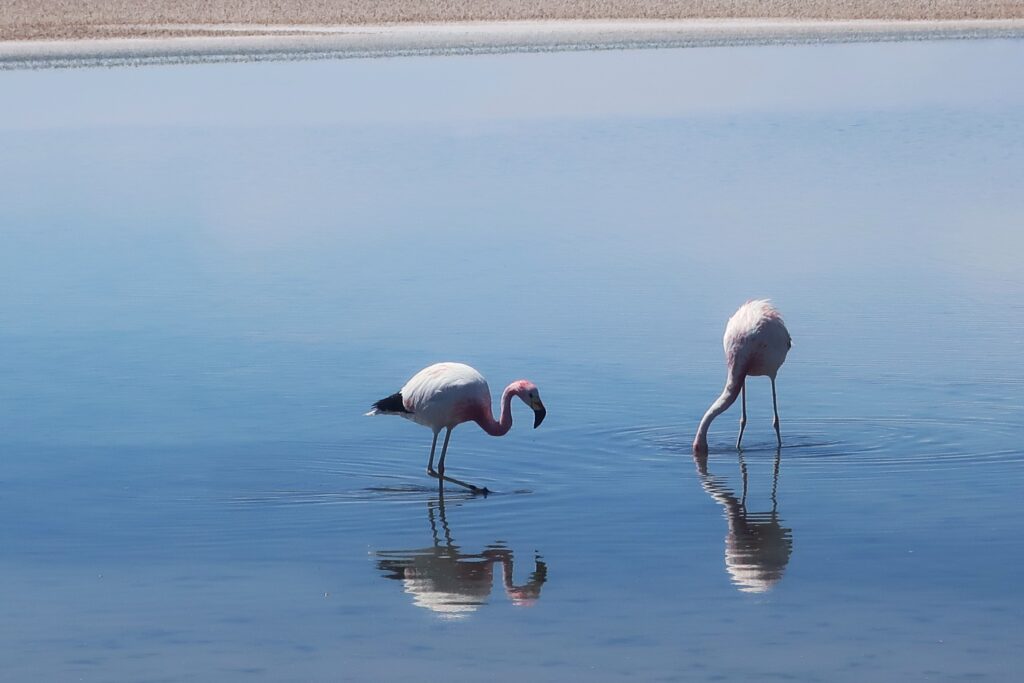
If you are an ancient person who read comic books as a kid, you may remember brine shrimp in a former incarnation as ‘sea-monkeys’.
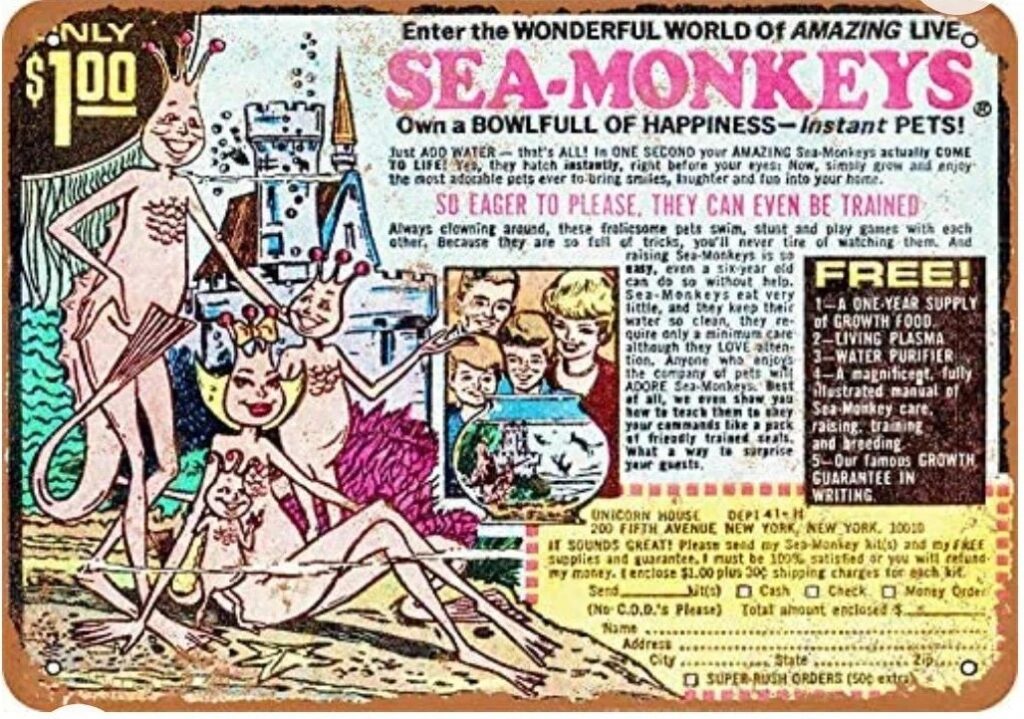
On December first, we celebrate Judith’s birthday with wine, coca-leaf tea, and passion-fruit cake.

Before dawn, we make our way into town for an organized tour to the El Tatio geysers.
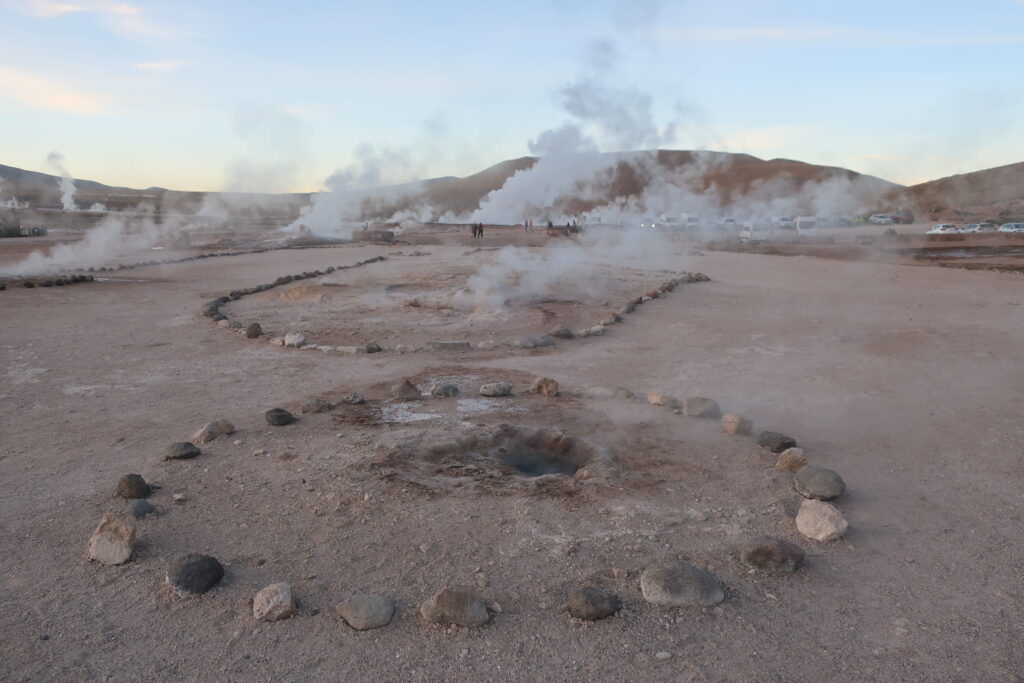
The altitude here is a dizzying 4,200 metres above sea level.
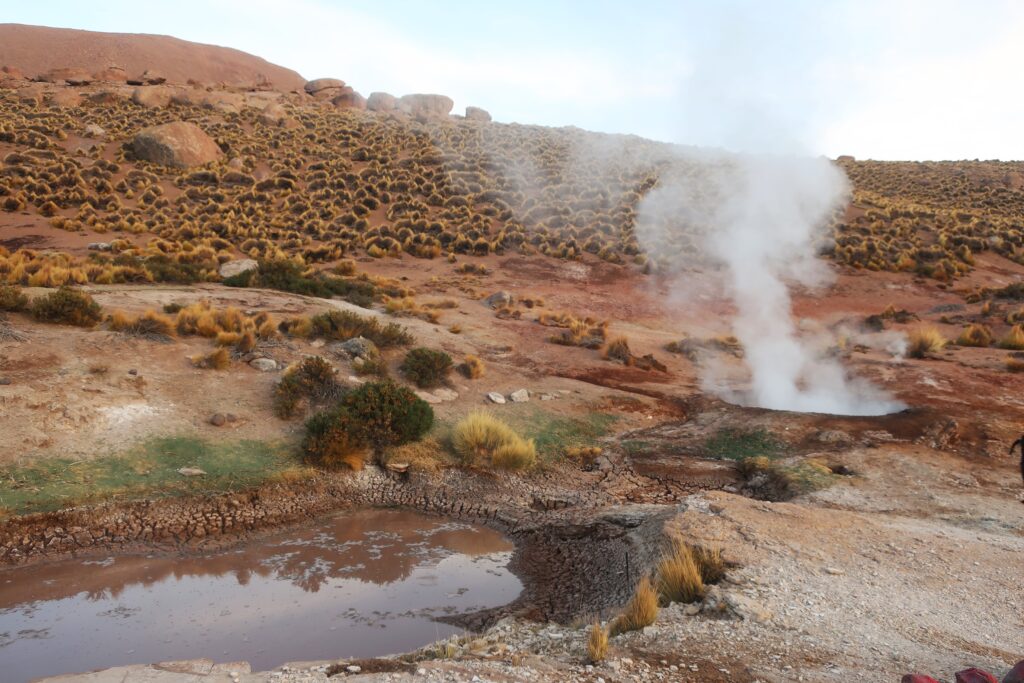
It is extremely cold here before the sun rises. That’s my opinion, anyway.
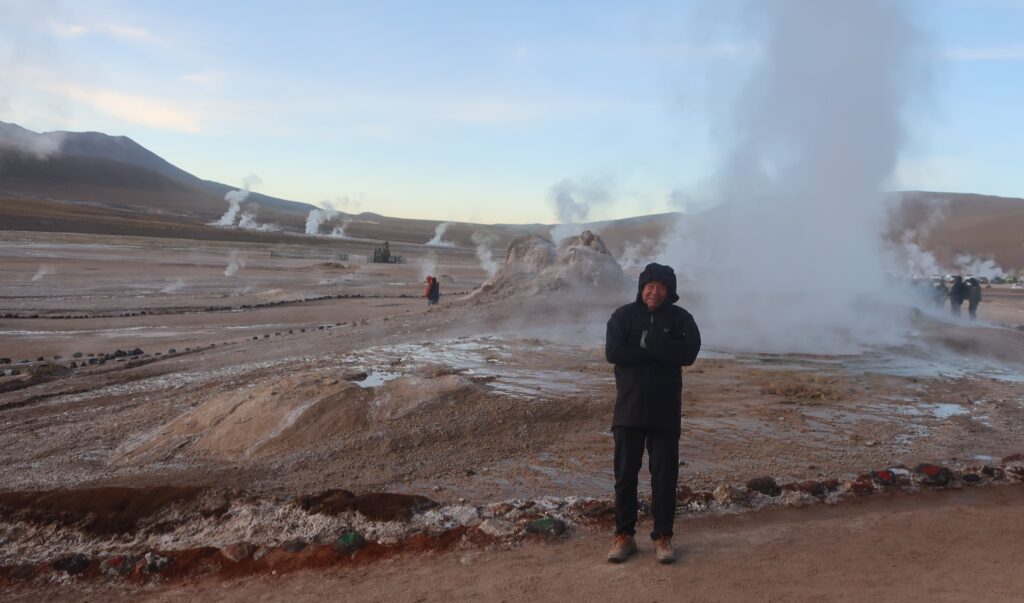
I think the idea of being here for dawn is that the steam is more impressive in the early morning.
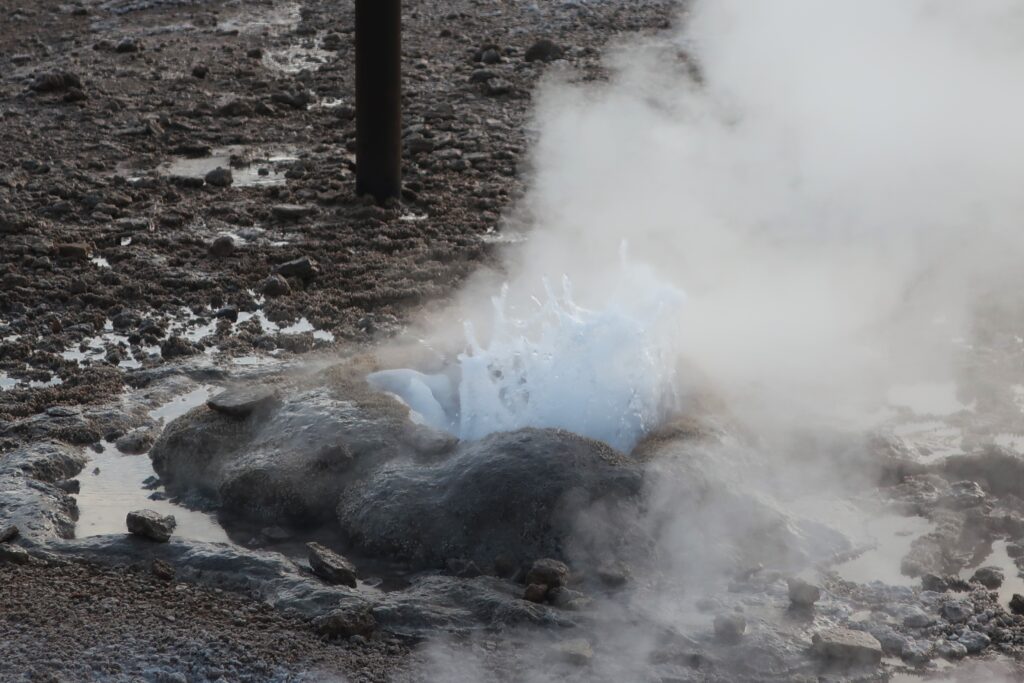
All of this impressive fumarole activity is produced by the high temperatures deep underground.
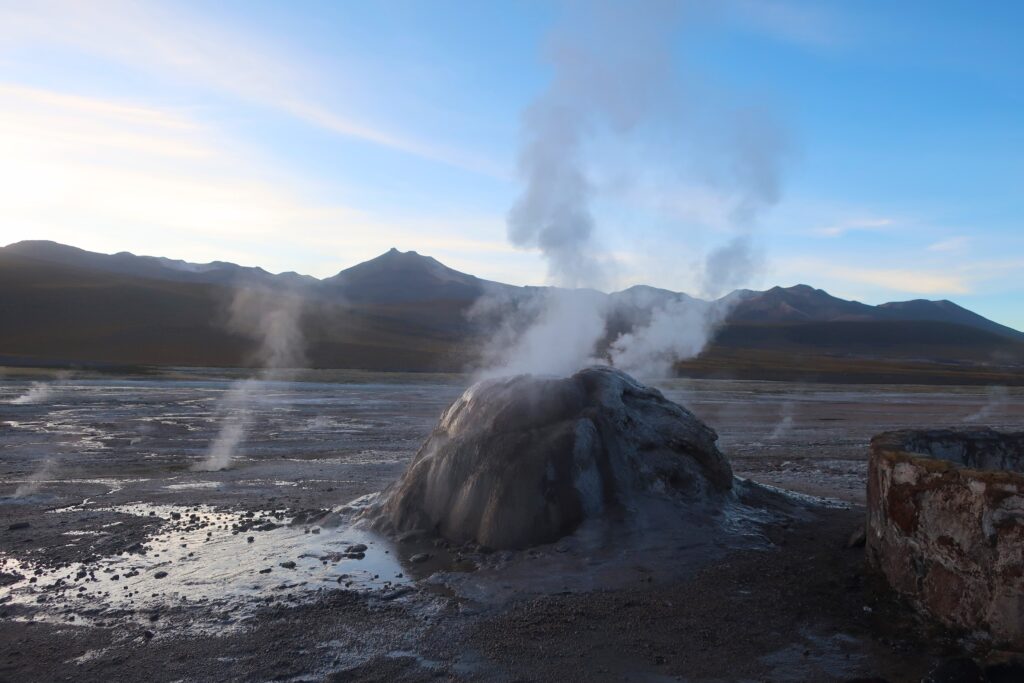
At last the sun comes up and brings some relief.
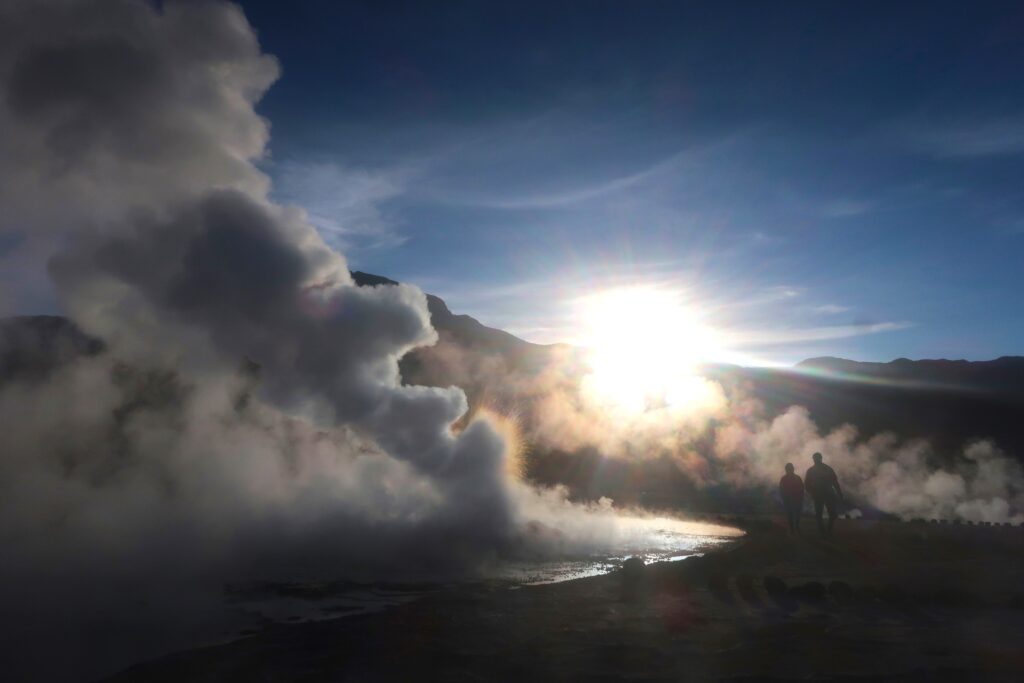
On the way back to San Pedro, we see more flamingos.
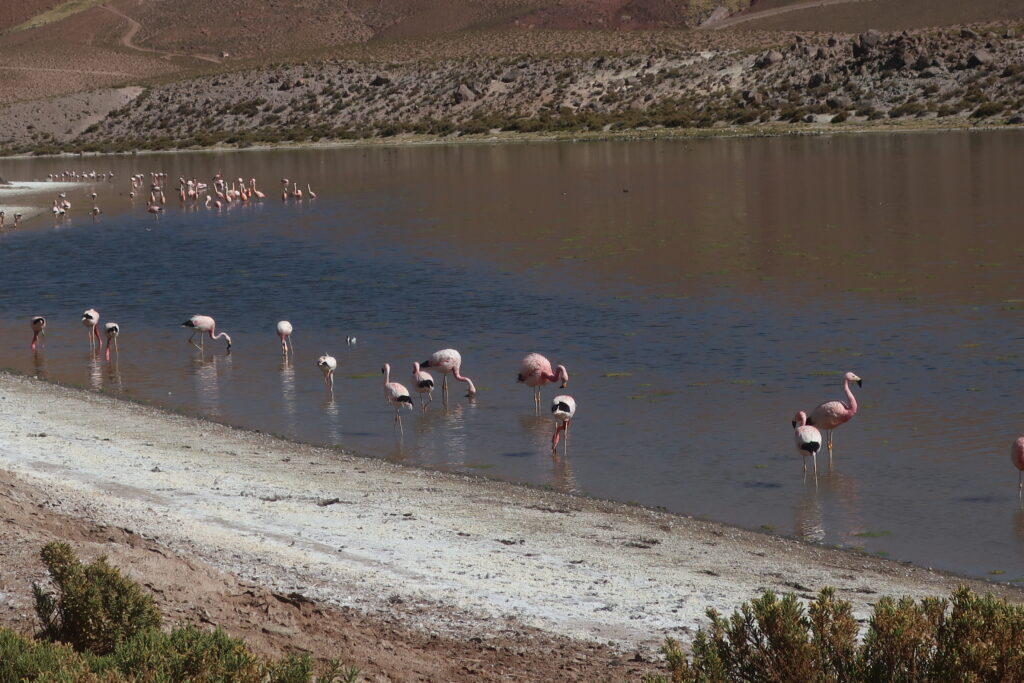
Some of these can be seen quite close up.
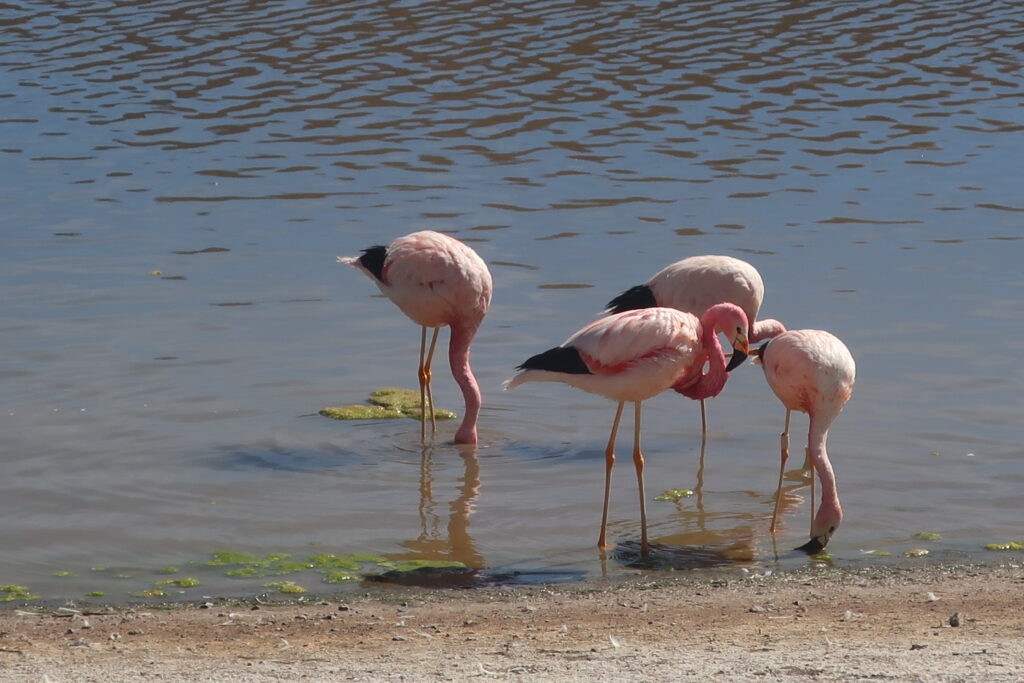
We even manage to catch some in flight.
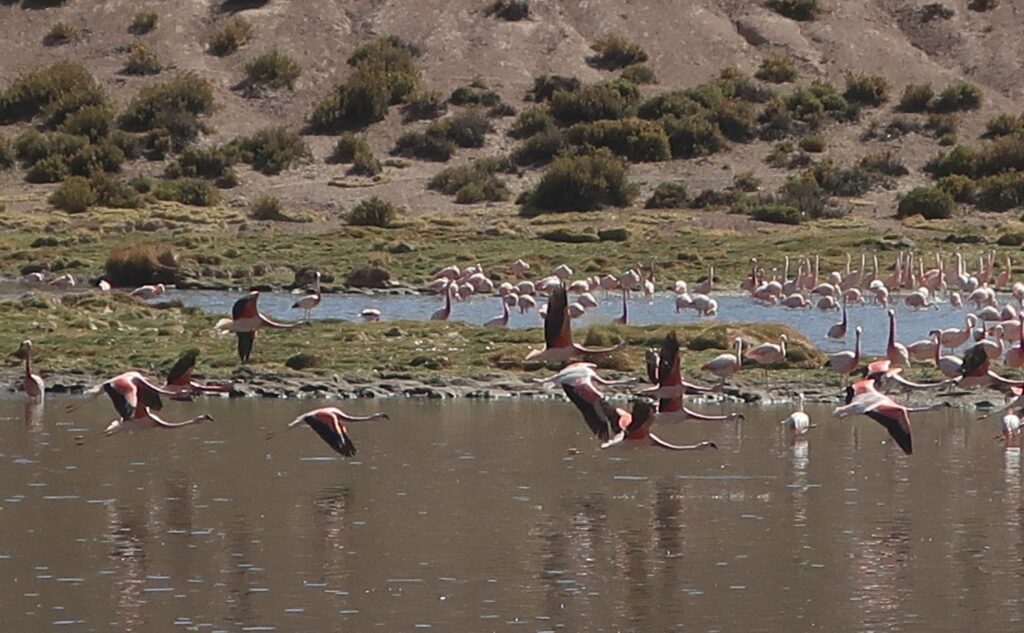
On the way back to Calama for our flight to Santiago, we come across some vicuñas grazing by the road.
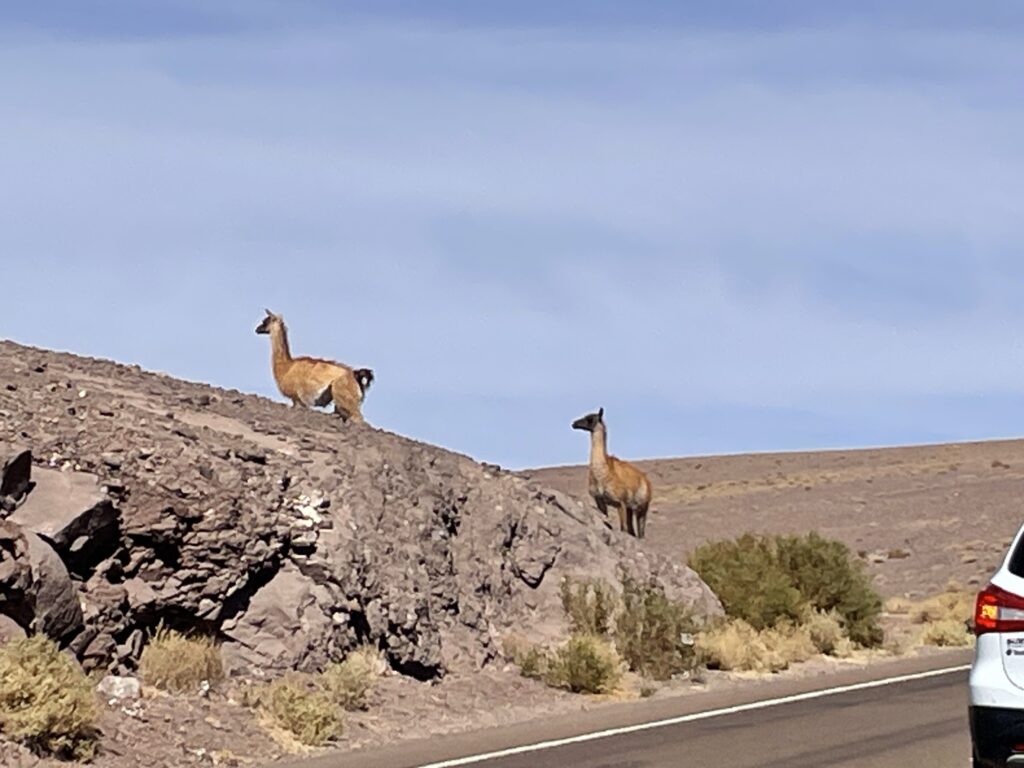
Sight or Insight of the Day
In Chile, it’s common to see roadside shrines dedicated to, presumably, the victims of traffic accidents. They range in size from dollhouse size, to doghouse size, to this full-blown dedicatory extravaganza.
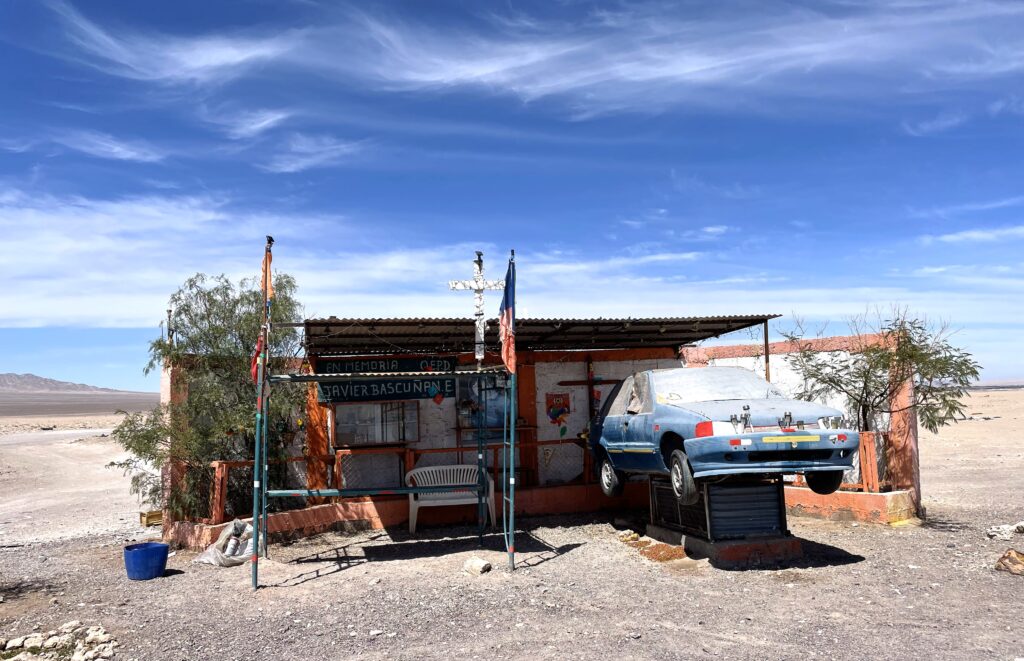
We wonder: is the young man in question entombed in the car itself?
